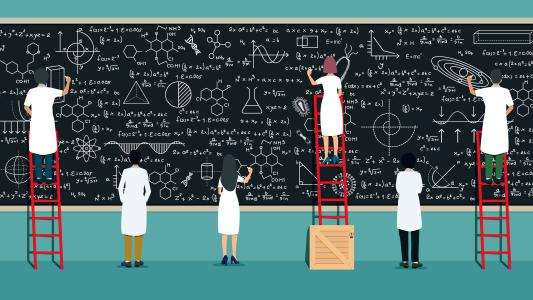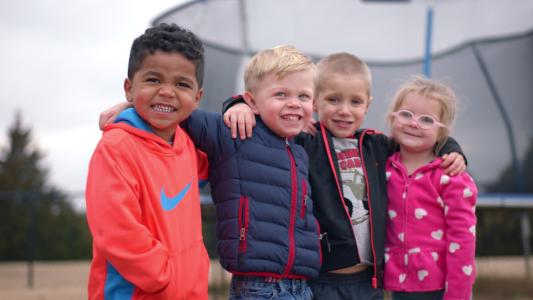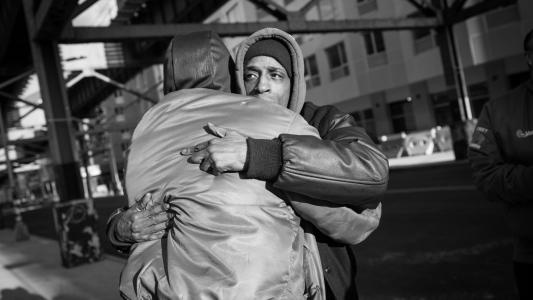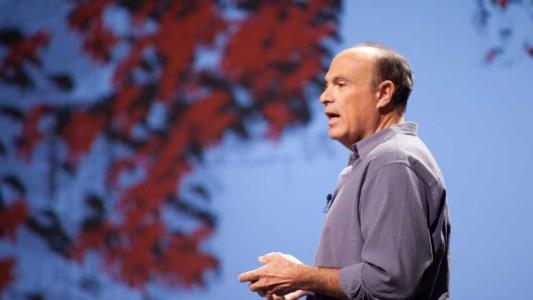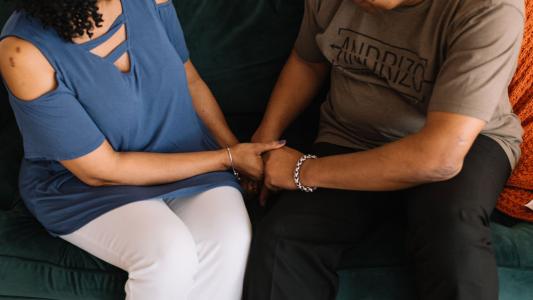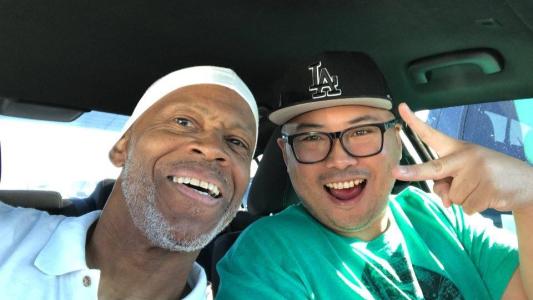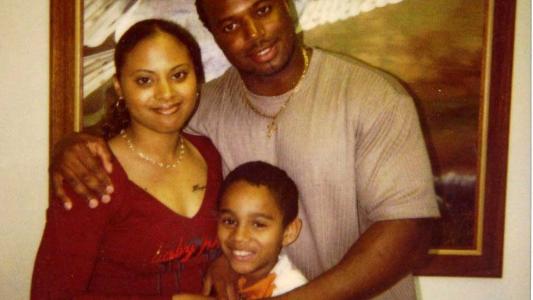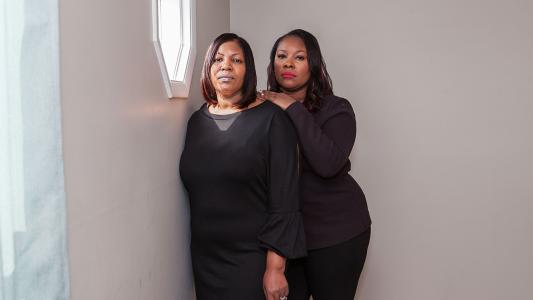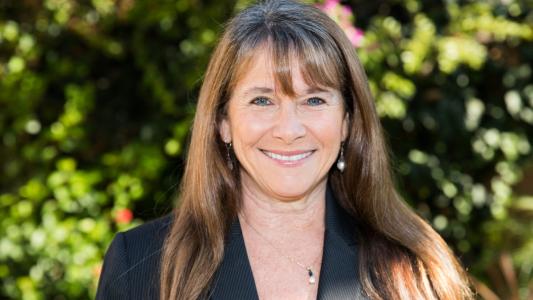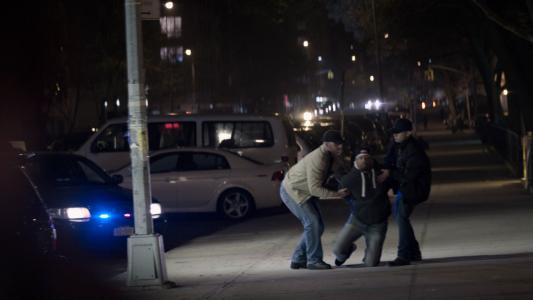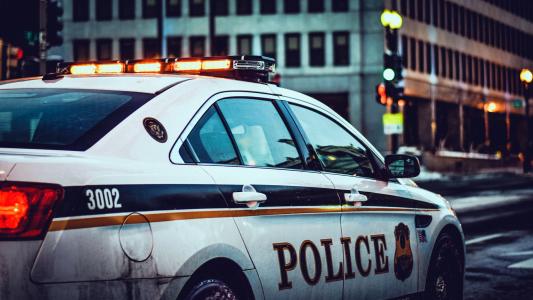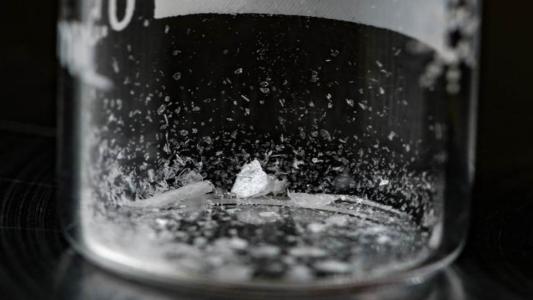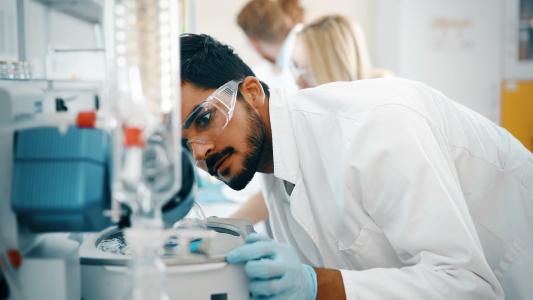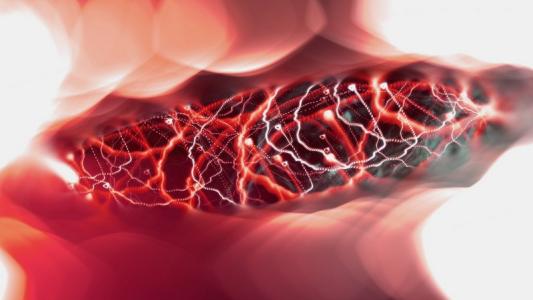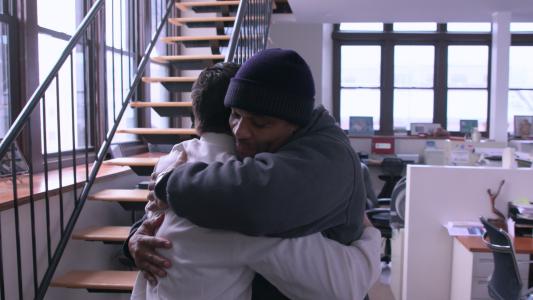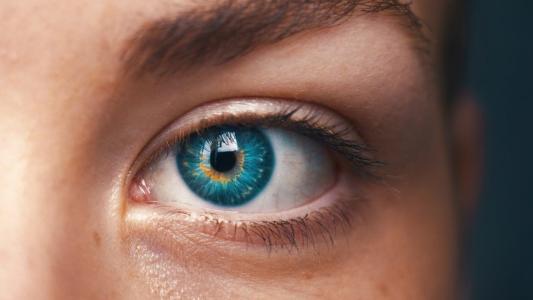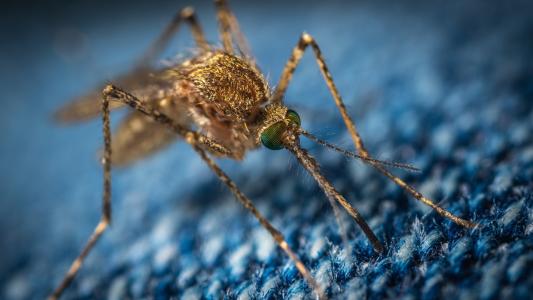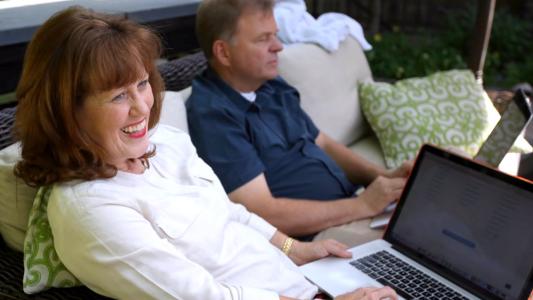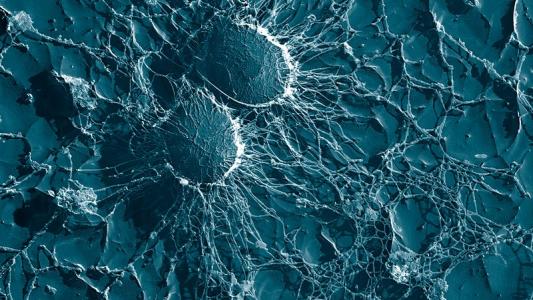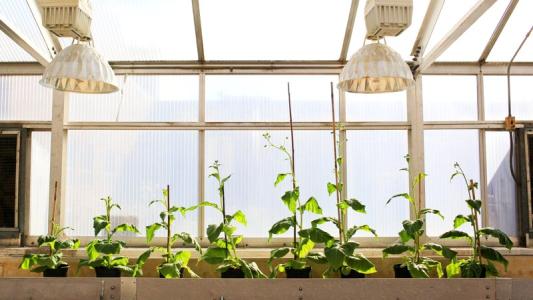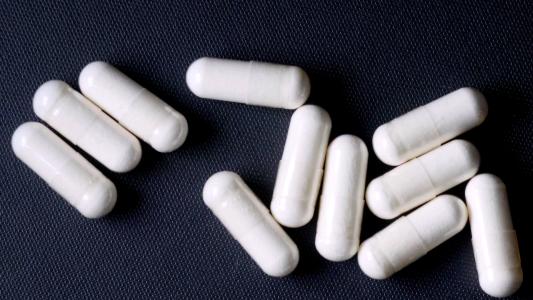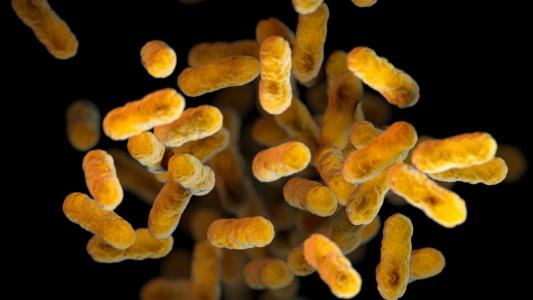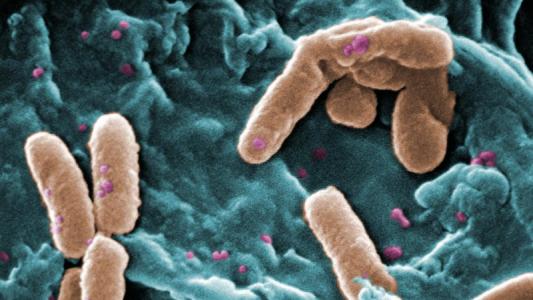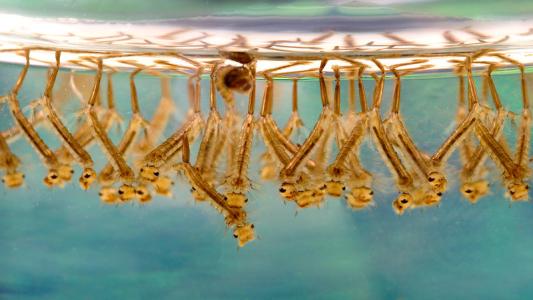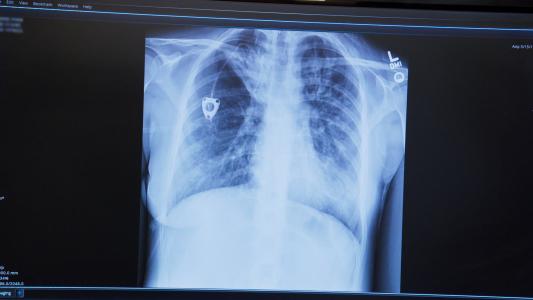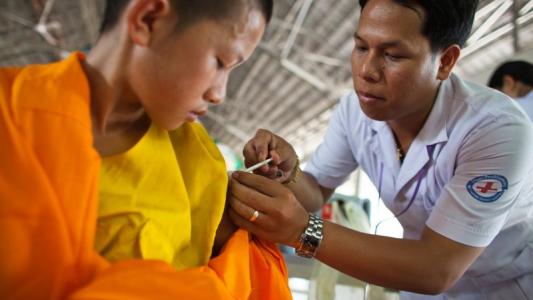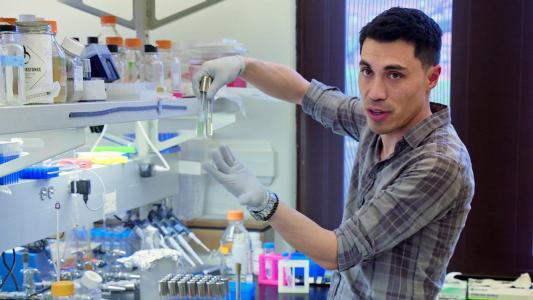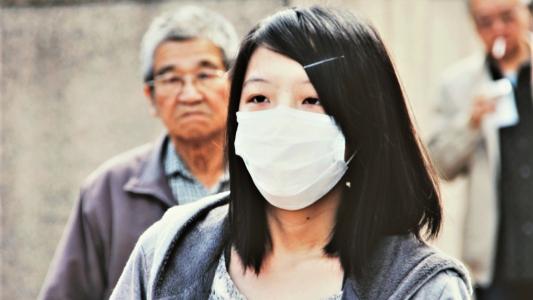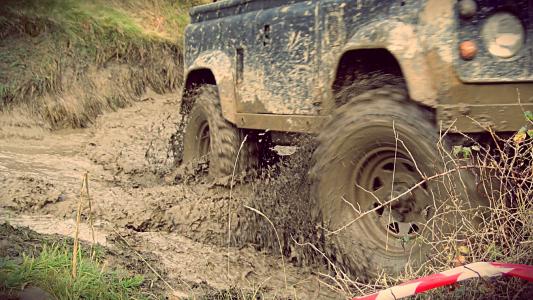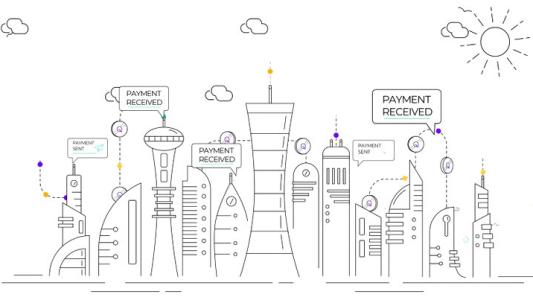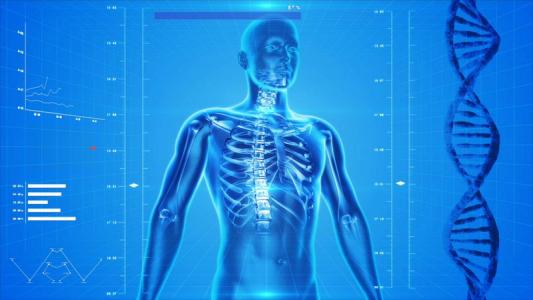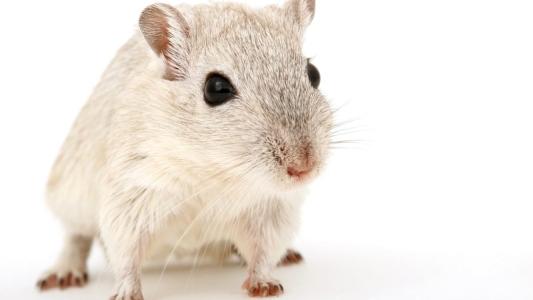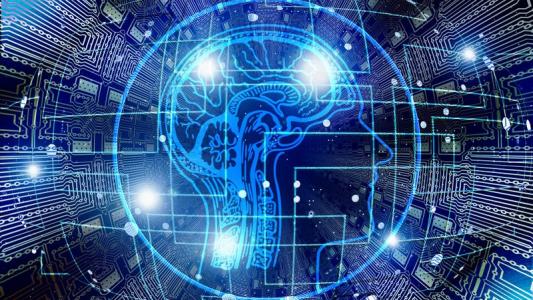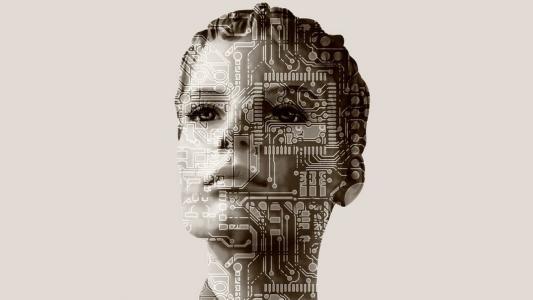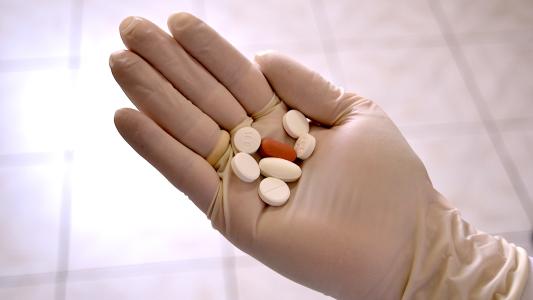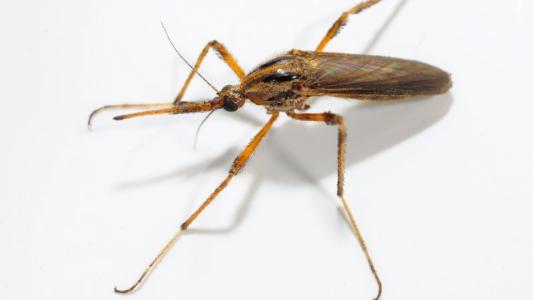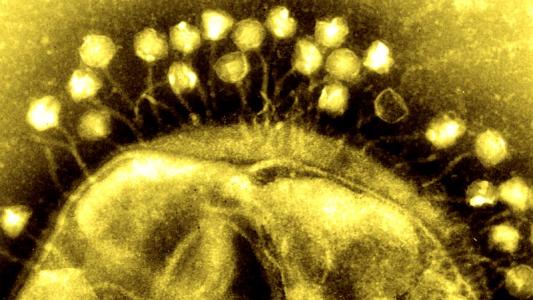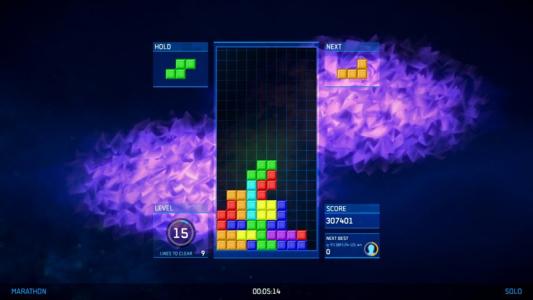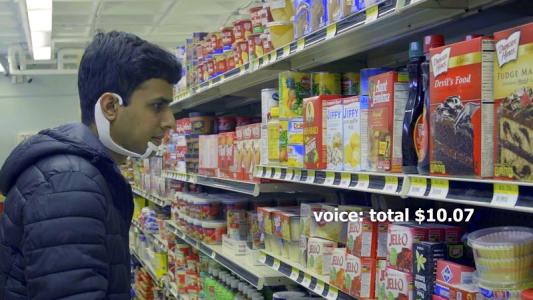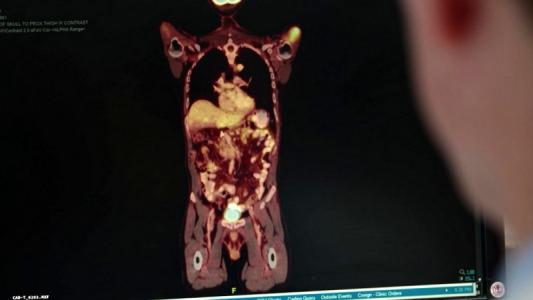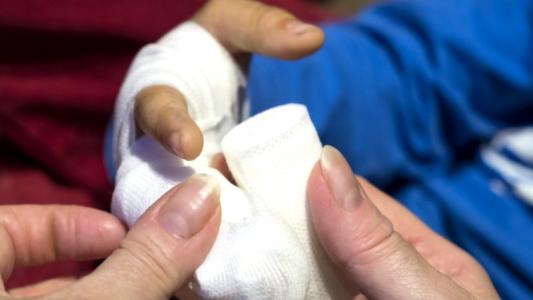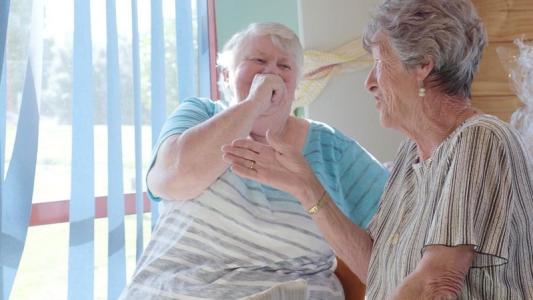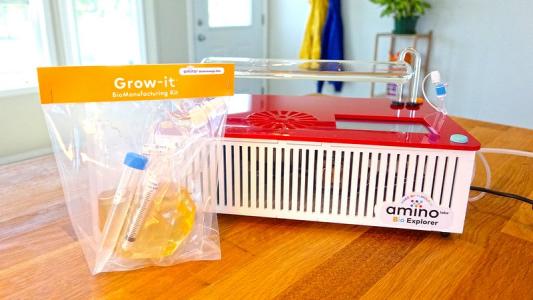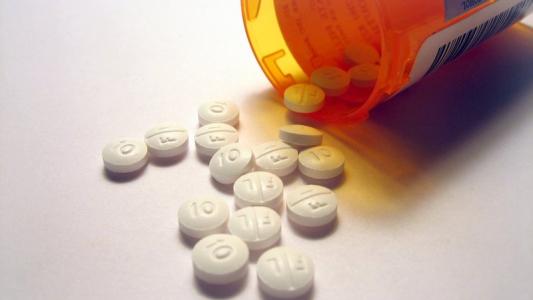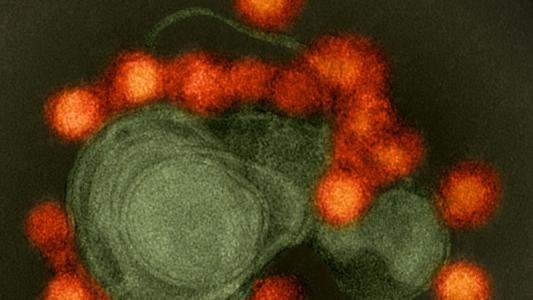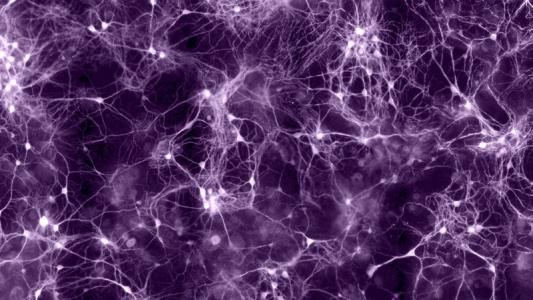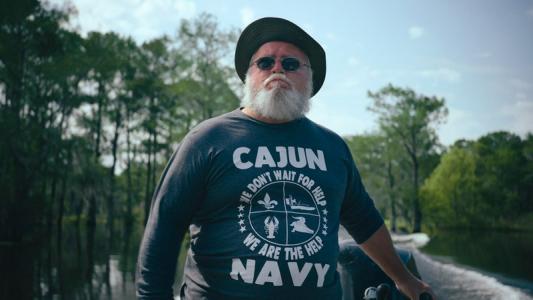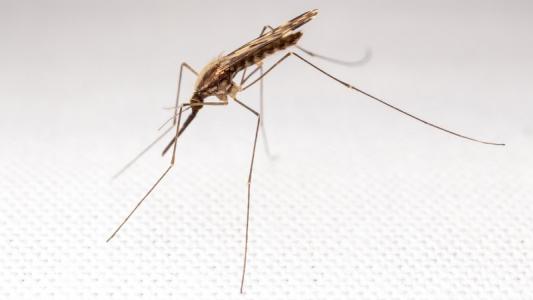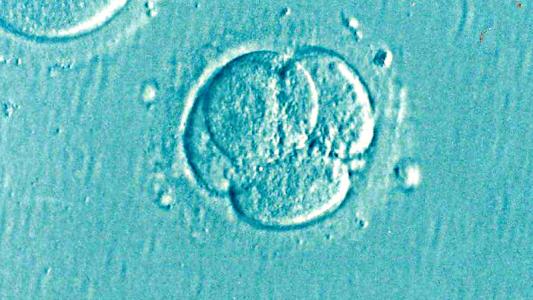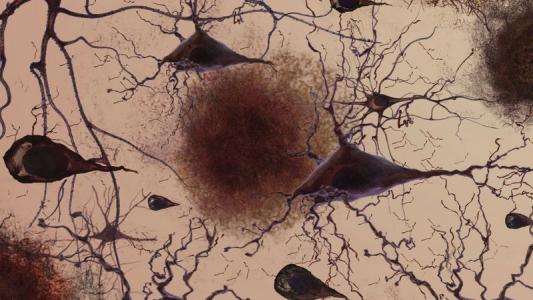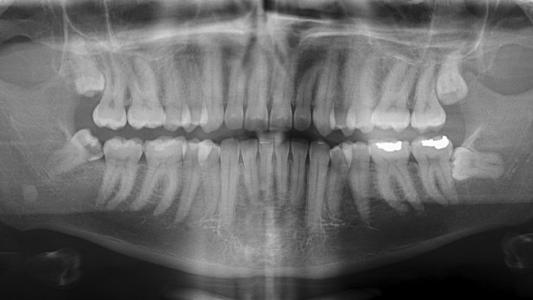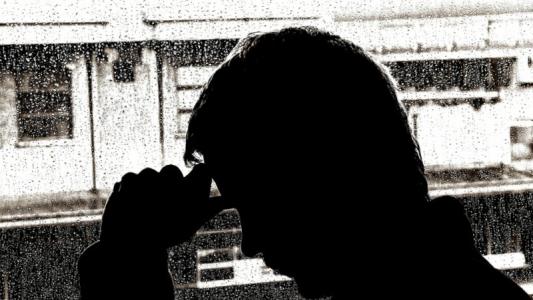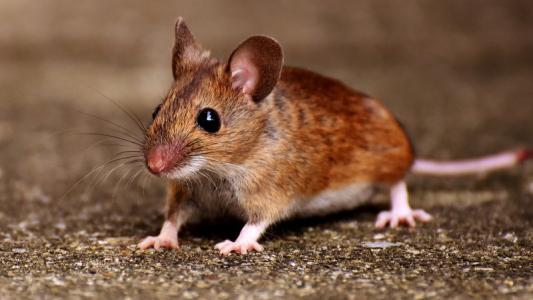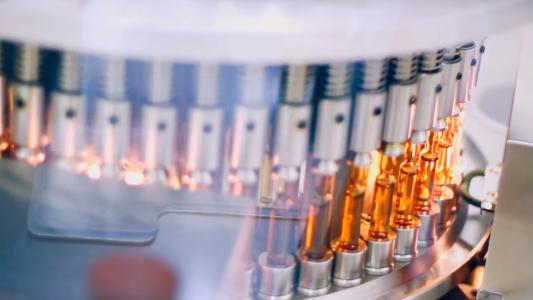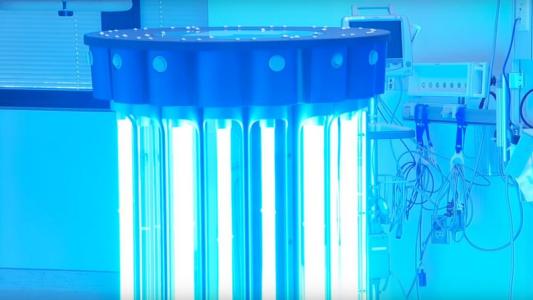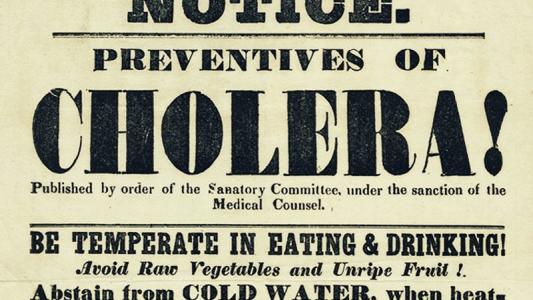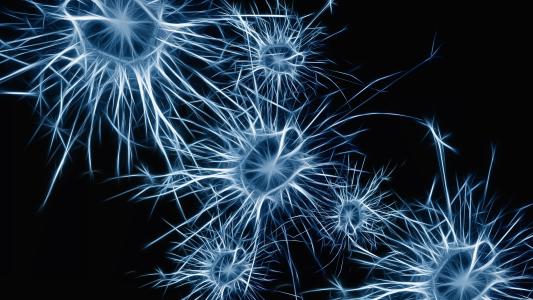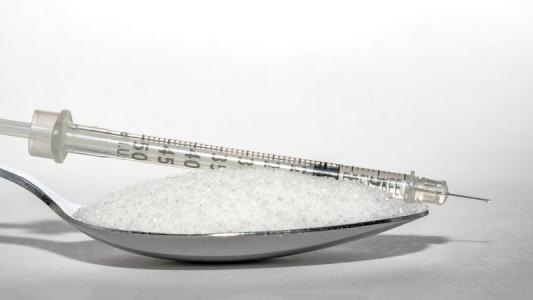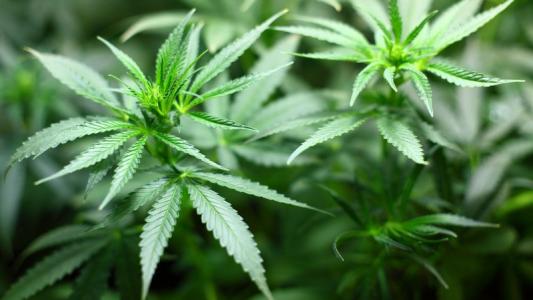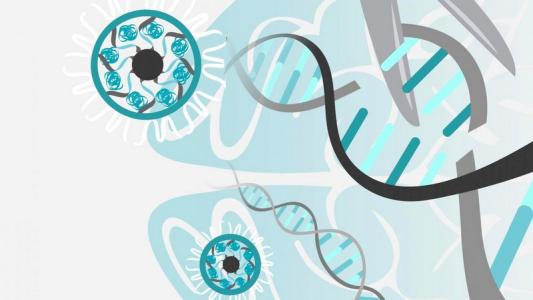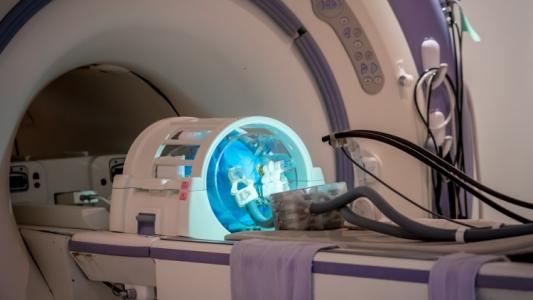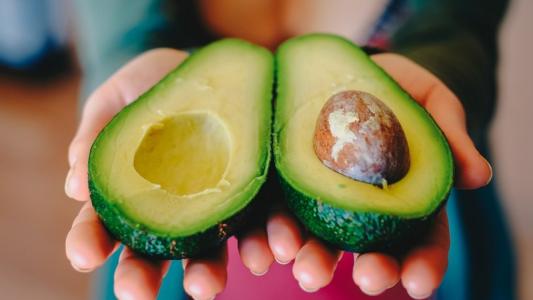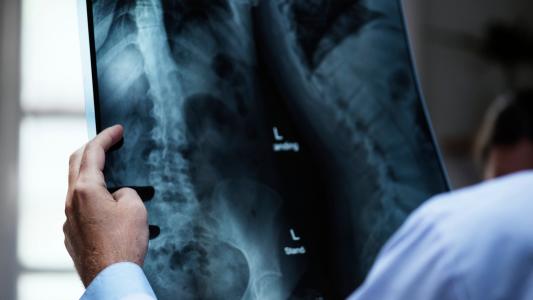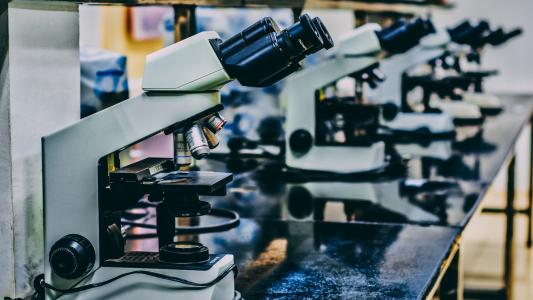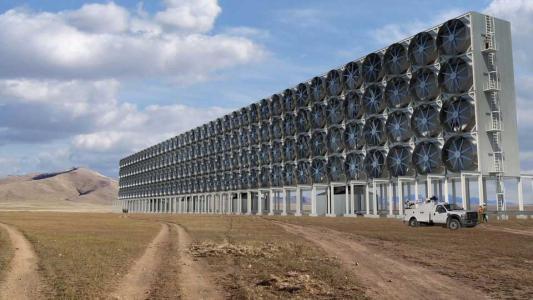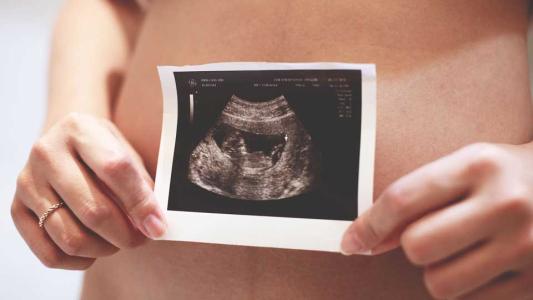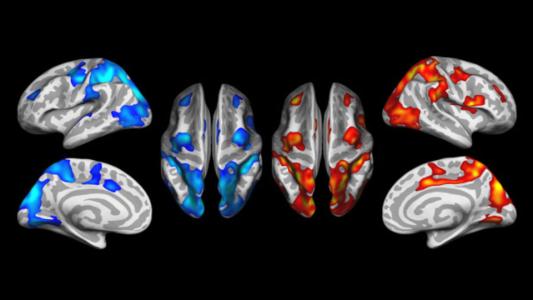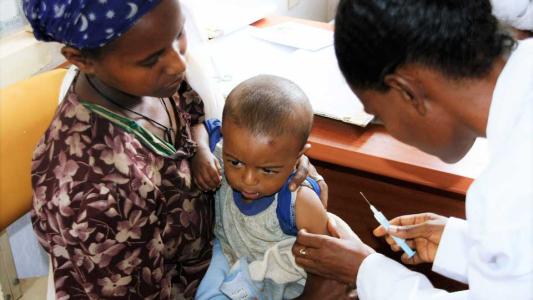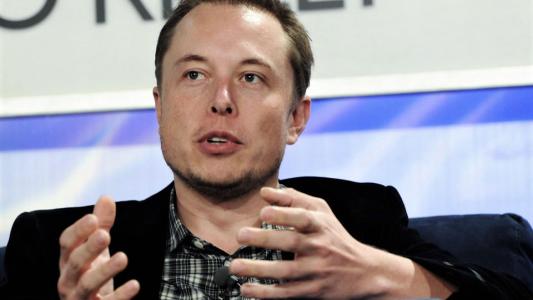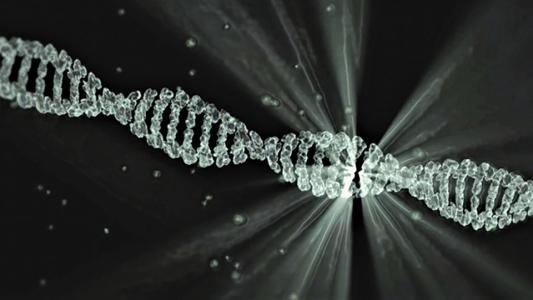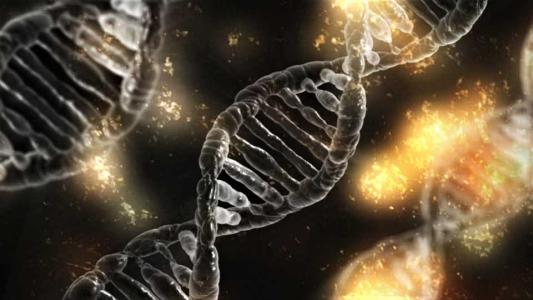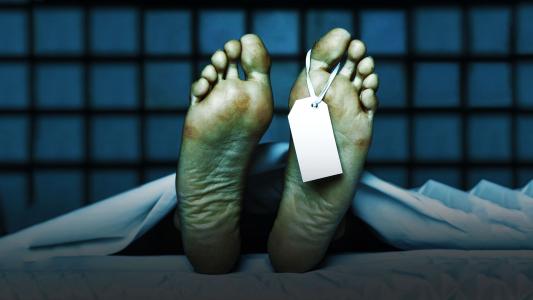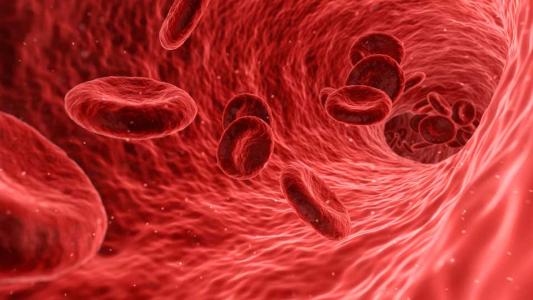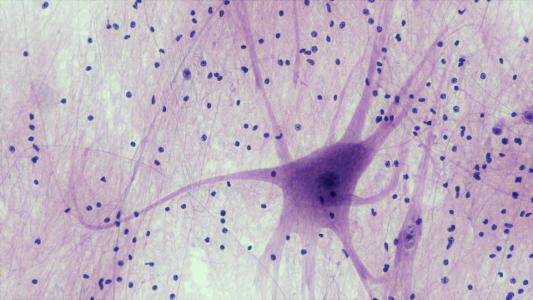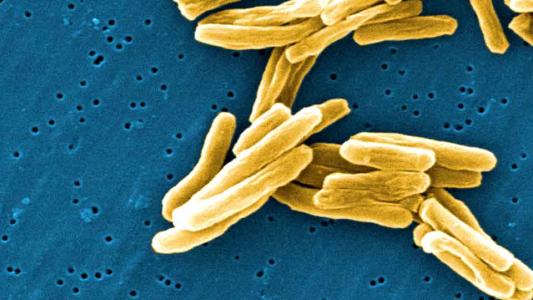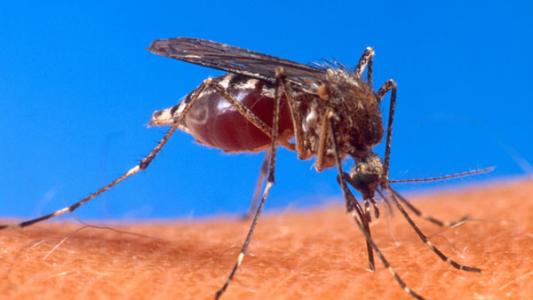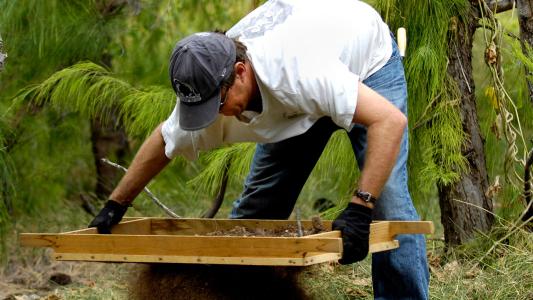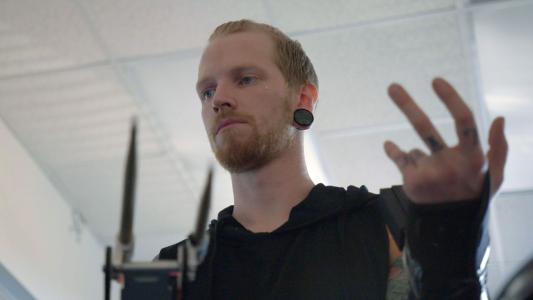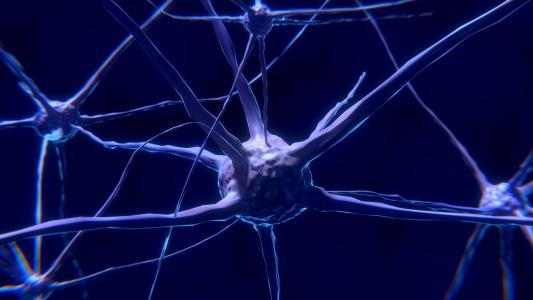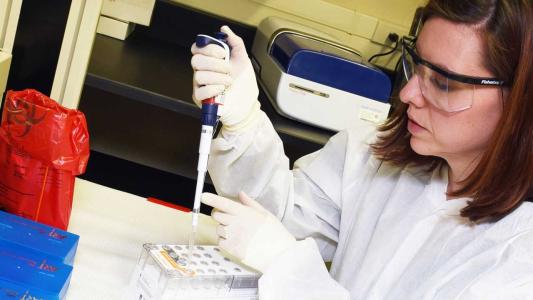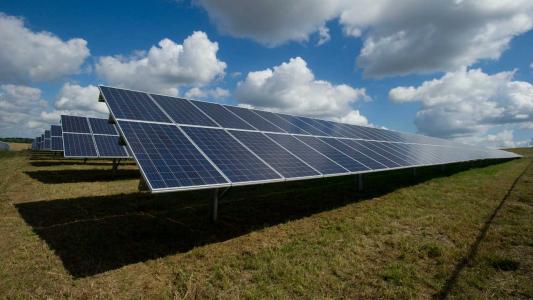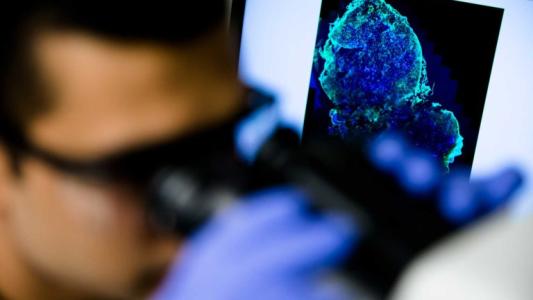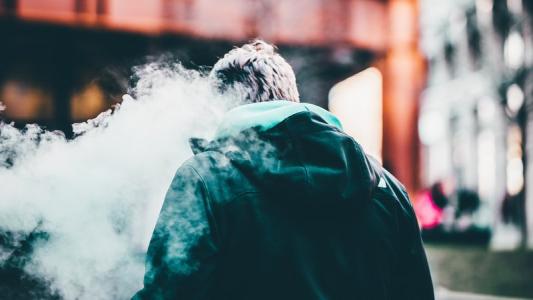Is autism a mysterious medical condition or part of the spectrum of human diversity?
Rethinking Autism: Interview with NeuroTribes Author Steve Silberman
How science is learning to admit mistakes
A shocking amount of scientific studies can’t be reproduced. Do we need to change the culture of science?
Sometimes it really does take a village
Building a new, community-based foster care system
A day in the life of a 'violence interruptor'
Freethink followed Andre T. Mitchell, the founder of Man Up!, and his violence interrupter team for a day in...
Should violence be treated as a disease?
Epidemiologist Dr. Gary Slutkin of Cure Violence says we need to treat violence as a disease and a public health...
Can cognitive behavioral therapy break the cycle of violence?
CBT is a promising way to reduce violence, so why has it been so hard to scale?
The ride home from prison
The "Ride Home Program" sends drivers to pick up former inmates on their first day of freedom to help ensure a...
A mother’s wish for her son’s killer
DeVitta Briscoe never had a chance to request a lighter sentence for the man who shot her son.
Rising stars in criminal justice reform
These key players are working from outside the system to lead the criminal justice reform movement.
Exclusive interview: how Miriam Krinsky is leading us to a smarter & more equitable justice system
Her organization is bringing together a new generation of prosecutors with a shared vision of fair, compassionate,...
Civilian oversight is a solution to police misconduct. But is it effective?
Creating a civilian review board to oversee police conduct seems like a straightforward solution to disciplinary...
Do we need more police or better police?
American cities are safer than they used to be, but they’re still quite violent, and many economists think they’re...
Community policing is back in vogue. But does it work?
As police departments look for ways to rebuild trust with their communities, an increasing number are turning to...
Why drugs are hurting more people than ever – and what to do about it
Is the solution to dangerous drugs... making them safer?
Science funding is wasting young careers. Here's how to fix it.
Basic science funding is a mess. Fixing it could radically improve the pace of innovation.
Hacking the brain's comms network – without surgery
When nerve cells in the brain communicate, they create tiny electric fields that can be sensed – and sometimes...
Prison education can break the "revolving door" of recidivism
Over 600,000 people will leave prison this year; here's how we can help them never return.
A tumor-killing virus could treat eye cancer and save children's sight
The only treatment for retinoblastoma is surgical removal of the eye—but scientists may have found another way:...
Tiny satellite “constellations” could bring the entire world online
SpaceX is out in front, but the race for global satellite internet is getting crowded.
The plan to wipe out mosquitoes using genetic engineering
The world's richest and poorest people are teaming up against humanity's deadliest predator.
The first private moonshot is ready to launch
The Israeli group's moon mission will be ride-sharing on a SpaceX rocket.
A "LinkedIn for cancer" helps myeloma patients find help – and hope
The site aims to help scientists discover new treatments – and empower patients to advocate for their own care.
Training the body to fight off drug-resistant bacteria
A new strategy, called host-targeted defense, could help solve antibiotic resistance by upgrading the immune system.
How NASA scientists learned to stick with super long-term goals
When the New Horizons spacecraft launched in 2006, Pluto was still a planet and the iPhone didn't exist.
Supercharging photosynthesis can grow 40% more food
We need a lot more calories to feed a growing world, and these scientists may have figured out how to get them.
Finding a new drug in one-third the time and one-thousandth the cost
How a pediatric cancer drug went from discovery to clinical trials in five years and just $500,000.
Living drugs may be the key to beating genetic disease
Engineering bacteria in the microbiome could fix previously untreatable genetic disorders.
What is cystic fibrosis—and what is it like?
What you need to know about this genetic disease, explained by someone who knows it inside and out.
How redesigning labs can demystify genetic science
"Scientists work in high-security buildings that are banned to the public and then wonder why they are misunderstood."
A hidden benefit of banned antimicrobial soap: Treating cystic fibrosis infections
The FDA banned triclosan from hand soap, but new research shows that it can supercharge old antibiotics.
Why we need a universal flu vaccine
Two scientists explain why the flu is still such a problem, a century after it killed 50 million people — and what...
Paige and the virus hunter
Drugs couldn’t stop her infection — so she asked Ben Chan to get her a virus, instead.
Air travel could be stopping the next plague
Our hyper-connected world might be protecting us against devastating plagues.
Neuroscience has a low-tech answer for a good night's sleep
Neuroscientists say that we may be ignoring a basic fact that could defuse the "screen-time wars" between parents...
Driverless cars go off-roading
Computer-game simulations can train self-driving cars to navigate in the real world.
"q" probably won't make you rich, but it's an experiment worth watching
It's not the next Bitcoin (or a path to riches), but it's an intriguing idea.
We're mapping 100 trillion human cells (and all of their genes)
The "Human BioMolecular Atlas" will map the active genes in over 200 types of cells and 80 different organ systems.
A skin graft cures cocaine cravings (in mice)
A CRISPR skin graft looks like a promising way to deliver gene therapy.
Personal genetics might solve the opioid crisis – and the pain crisis
Why does pain hurt more for some people? Why do others feel nothing at all?
AI will make you smarter
Artificial intelligence will multiply your own intelligence, in ways that will surprise you.
Why are unsolved murders on the rise?
The evidence suggests that most murderers get away with it. Here's what we can do about that.
To eradicate TB, we need old-fashioned ambition
The Ebola outbreak sparked more medical innovation in two years than TB has in decades, even though TB is killing...
What's the deal with the giant mosquitoes after hurricanes?
These suckers grow to be three times larger than other mosquitoes, but they may not be as bad as you think.
Meet the 380 trillion viruses inside your body
Scientists aren't exactly sure yet what the "virome" is up to, but it's probably important.
The first “telepathic” social network is used to play tetris
Researchers claim that BrainNet is “bringing us a step closer to a ‘social network of brains.’”
What we learned from a decade of commercial space travel
Businesses have gotten to space; now what?
A new kind of headset “hears” words you don’t say
The project, named AlterEgo, intentionally crosses the line between what's "out there" and what's in your head.
The 2018 Nobel Prize could mark a turning point in the war on cancer
More than one in three people will be diagnosed with cancer during their lifetime; new discoveries are helping them...
A new stem cell treatment can heal burns, bedsores, and diabetic ulcers
In addition to healing injuries, the approach could be useful for repairing skin damage, countering the effects of...
How to Start a Coffin Club
How the founders of the "coffin clubs" got started – and their advice for others.
Can DIY science (finally) cut the cost of insulin?
A century after its discovery, insulin is still incredibly expensive, but DIY bio-manufacturing could change that...
Why a third of antidepressants are prescribed for "off-label" problems
The "secret life of antidepressants" could open up a host of new treatments.
Zika could be a “smart missile” for brain cancer
Zika can devastate fetal brains; scientists want to turn it against brain tumors instead.
Brains store memories in a temporary "cache" (and we can read it)
Like the day’s newspaper, the brain has a temporary way to keep track of events.
How a video game helped the Cajun Navy save lives
When lives are on the line, inspiration can come from the most unlikely places.
GMO mosquitoes could be our best new weapon against disease
It sounds like science fiction, but it could save millions of lives.
FDA approves first mute button for genetic diseases
It is the first of "a wave of advances that have the potential to transform medicine."
Are "CRISPR kids" the new "test-tube babies"?
Forty years later, IVF shows how fears about new technology can fade.
New evidence suggests viruses may trigger Alzheimer’s
For the first time in a long time, there's a new direction for potential Alzheimer's treatments.
High tech archaeology found a new way to screen for vitamin D deficiency
Vitamin D deficiency is an age-old problem, but new techniques from archaeology may be the key to catching it early.
What happens if scientists lose faith in their own research?
Half of scientists have failed to replicate their own work — but they rarely come forward. A new project wants to...
AI could replace chemical testing on animals
Scientists have developed software that could save one billion dollars (and two million animals) each year.
Paralyzed mice walk again after breakthrough treatment
One small step for a mouse, perhaps one giant leap for treating spinal injuries.
“Cybersecurity for plants” can stop germs from hacking our food supply
Computer hackers exploit flaws in code to access systems and take what they want; plant diseases work the same way.
Quieter, faster, stronger: The next jet age is coming
Air travel takes longer today than it did 40 years ago. That's about to change.
UV robots can sterilize an ICU in 10 minutes
UV light destroys bacterial DNA from the inside out, eradicating the toughest pathogens in minutes.
Will probiotics cure cholera?
MIT scientists say eating good bacteria can prevent, cure, and diagnose cholera—cheaply.
The gut microbiome affects brain structure
What happens in your gut in childhood can change how your brain works later in life.
Insulin pills could change everything for diabetics
A pill instead of a needle would be the "holy grail" for diabetes treatment.
FDA approves the first marijuana-based drug
The drug has been proven effective at reducing seizures from certain types of childhood epilepsy.
CRISPR edits out autistic traits in mice
The technique could also open up treatments for Huntington's, schizophrenia, and epilepsy.
A new brain surgery robot can work inside an MRI
Metal robots and electric motors don't normally play well with giant magnets.
How coffee could treat diabetes
Someday, diabetics could use caffeine to trigger insulin production, thanks to specially designed kidney cells.
New tech makes fresh produce last twice as long
The plant-based preservative could radically change the game on food waste.
Precision medicine cured an “untreatable” stage IV breast cancer
Two years ago, she had two months to live.
Does CRISPR cause cancer?
Two studies find that CRISPR'd cells tend to become cancerous. Here's what that means for biotech medicine.
The cost of sucking carbon out of the air just fell by 85%
It's not there yet, but carbon capture just got interesting.
Study shows schizophrenia begins in the womb, unraveling a genetic mystery
Half of genes linked to schizophrenia are primarily involved in the placenta, not the brain.
Mental training can heal traumatic brain injuries (and reduce depression)
Millions of people are dealing with traumatic head injuries; brain scans show that cognitive training could...
Why don’t vaccines work as well in poor countries?
Our best tool for preventing disease is the least effective in the places where it's most needed.
Tesla fixed its Model 3 brakes with software – and showed us the future of cars
Consumer Reports failed the Model 3's braking system. A week later, Tesla beamed a fix to the entire fleet.
Genetic tests miss “invisible” mutations that cause disease and neurological disorders
There's more to your DNA than just letters, and mutations can lurk in that genetic "dark matter."
Emergency braking was disabled during self-driving Uber fatality: Feds
Uber turned off the emergency braking function in its self-driving cars because of "erratic vehicle behavior."
Spraying bacteria onto the skin can treat eczema
The bacteria in your microbiome ward off infections and help keep your skin healthy.
Your DNA is not the same in every cell
Your body began with a single cell and a single genetic code. But it didn't stay that way for long.
Could freezing your body offer a chance at immortality?
In a lab in Arizona, dozens of bodies sit preserved at 320 degrees below zero. They each paid $200,000 to be frozen...
Robots are mass producing mini-organs
Robots can make hundreds of tiny copies of your organs, allowing doctors to test many different treatments at the...
Scientists physically "transplant" a memory in snails
The experiment breaks the conventional wisdom about what memories are made of.
The cause (and possible cure) for most infertility
Fertility medicine may be on the edge of a breakthrough.
Two billion people have TB. What should we do about it?
In the fight against TB, sometimes it's better to just get along.
CRISPR can diagnose Zika (and Ebola) with just a strip of paper
We could be on our way to a fast, reliable, portable test for almost any virus or cancerous mutation.
We found the oldest human virus: It's familiar (but weird)
The discovery cracks open a 7,000-year history of human-virus warfare. And it's raising weird questions.
Bionic prosthetic grants amputee musician a rocking encore
How might your life change if you lost an arm? After losing his right arm in an electrical accident, Jason wasn’t...
Neuroscientists want to beam experiences directly into your brain
It's a breakthrough for the blind and paralyzed, not the first step toward the Matrix. (Promise.)
Scientists want to rewrite the entire human genome, from scratch
What if we could rewrite our entire genetic code to make us invincible against viruses?
Organic solar is (finally) efficient enough to compete
Reliable power straight from the sun looks more achievable than ever.
Glowing cancer cells could find hidden tumors (and replace mammograms)
A new pill can make cancer cells glow under infrared light, and it could eliminate for mammograms.
Unlike smoking, vaping won't mess with your microbiome
Smoking kills off good bacteria and upsets the balance of power your gut.

